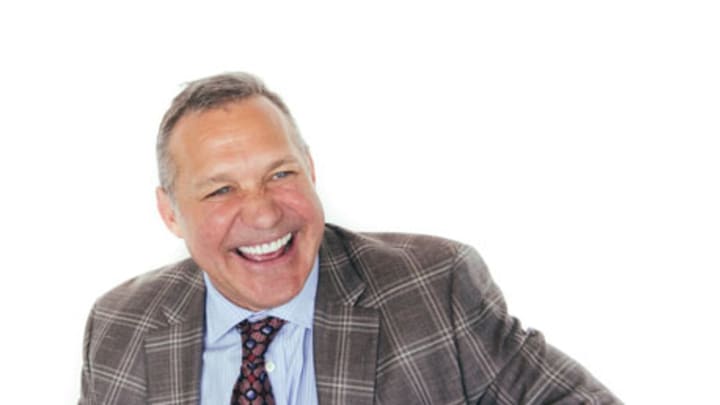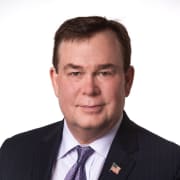Sports Marketing expert Says Virus Will Accelerate Seismic Shifts in College Athletics

Despite the current financially-uncertain waters, if college sports were a stock, Vince Thompson would definitely buy and hold.
“We know that in the long term, the durability of college sports and college football will be there,” said Thompson, the Chairman and CEO of MELT, the Atlanta-based sports marketing company, whose client list is a Who’s Who of college sports and business. “You’ve got a multi-generational evergreen fan base.
“The college campus is the holy grail. If you can secure the brand love of a 20-year old you can have it for 40-50 years. One thing that is not going away is the love of the campus.”
Despite that love, right now college football and its fans don't know if they will be back on campus this Fall. And what this uncertainty is going to do, said Thompson, is make the powers that be in college athletics reassess EVERYTHING about how they do business.
Until COVID-19 shut down all sports in March, college athletics at the Power Five level was on a spending spree of building and awarding huge contracts with unheard of buyouts to coaches.
Those days, said Thompson, are over.
“In the industry of college athletics we were hurdling toward a seismic shift anyway,” he said. “This pandemic may accelerate that process by 5, 10 or 15 years.”
During our conversation Thompson touched on a number of topics where college athletics may have to change in the post-coronavirus world:
**--In stadium attendance/fan expectations: The attendance numbers in college football have trending down in the past few years. And this certainly won't help.
Fans cite the cost of game tickets, parking, travel and the sheer expenditure of time—compared to the in-home experience-- as the reasons attendance is down. The most recent stadium renovations are actually taking the total number of seats down while installing more luxury seats, which generate more income.
Given what has happened, how long will it take for fans to fill up a 95,000-seat stadium again, even if there is an effective vaccine found for the virus?
No one knows the answer.
“At some point people will come back to (games on) campus,” he said. “But when they do their expectations will be different. We’ve got to elevate the in-stadium experience.”
The comparison he draws is what a fan can expect in terms of amenities and comfort in a large SEC Stadium vs. the luxurious Mercedes-Benz Stadium in Atlanta, home of the Falcons, and where the SEC championship game and Chick-fil-A Peach Bowl are played each season.
More succinctly put: When the fans do return they are going to want a bit more bang for their buck. Or they'll stay at home where this is no traffic, no lines for concession and the restroom is just down the hall.
**--The relationship between the NCAA and the Power Five conferences: The issues that have been raised by the coronavirus have been yet another reminder that the NCAA has virtually no authority over college football at the FBS level. The Pac-12 football coaches said Wednesday that they wanted the NCAA to mandate that all FBS schools start their preseason on the same date.
There’s just one problem. The NCAA and President Mark Emmert do not have the authority to do that. Some believe it is simply a matter of time before the Power Five goes off on its own. The challenges presented by this pandemic could also accelerate that process.
“You’re looking at a forced modernization of the NCAA that could otherwise have happened incrementally,” said Thompson.
**--Name, Image, and Likeness legislation: Next year NCAA legislation could be passed that will allow college athletes to earn money for the use of their name, image or likeness. Athletes, for example, could be compensated for making personal appearances on behalf of sponsors.
Now the devil is in the details when it comes to actually implementing the legislation. But Thompson sees it as a game-changer that not only helps the athletes, but the school as well.
“It should have happened a long time ago,” he said. “Having all of these athletes in the marketplace could be the saving grace for athletic departments based on ancillary income. Before this money was left on the table.”
Thompson also disagrees with the notion that only the superstar athletes will get these NIL opportunities.
Thompson is an Auburn grad and used the example of the school’s equestrian team, which has won six national championships, the most recent in 2019.
"These ladies personify empowerment and under NIL could open whole new lanes of products that want to be involved in college athletics,” he said. “I’m real bullish on the non-revenue athletes.”
**--No 2020 season in the spring 2021: It has been widely reported that if the season cannot start at some point during the Fall, college football might consider playing the entire season during the Spring Semester.
Thompson doesn’t see it because under that scenario the superstar players would bail, just like some currently do for bowl games, in order to start getting ready for the April NFL Draft.
“There is no way we play the 2020 season in the spring of 2021,” said Thompson. “There is no way that a Trevor Lawrence (Clemson quarterback and likely No. 1 draft pick) plays if that happens. There is zero upside to him to play.”
In fact, said Thompson, if the season does not start until October players like Lawrence may choose not to play at all.
The bottom line, said Thompson, is that change is coming and, because of the virus, it is going to come a little quicker.
“The business model for college athletics really hasn’t changed in 40 years,” he said. “I see a major disruption in the model. And some of it is not going to be pleasant.”
